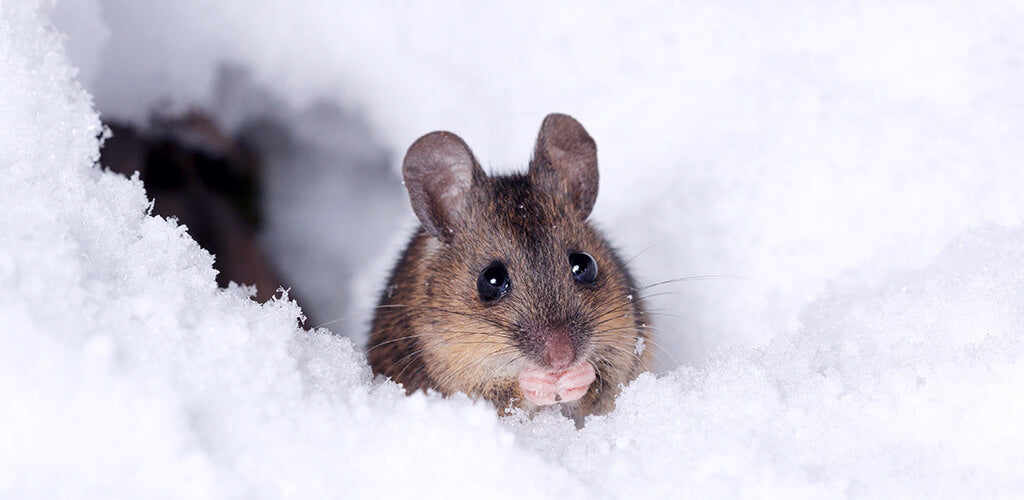
How does hibernation work?
During the cold, dark season, many people suffer from fatigue, listlessness, and sleep disturbances. But why don't humans hibernate? Here you'll learn how the famous hibernation actually works and what we can do while awake to stay well-rested and motivated during the cold days.
Table of contents
- Winter & our sleep
- Why do animals hibernate?
- How hibernation works
- Can humans hibernate?
- Sleep better in winter
- Conclusion
1. Winter & our sleep
Gloomy weather, cold winds, and frosty snowfall not only affect our mood, but usually make us one thing above all: tired! Our sleeping habits depend on a variety of internal and external factors. It is therefore quite natural that our need for sleep also varies at different times of the year, and we in winter generally need a little more sleep – because there is a lack of daylight, which our internal clock Our body then produces fewer happiness hormones and releases more Melatonin This leads to the well-known daytime fatigue and promotes the development of the famous winter depression. The lack of daylight, cold temperatures, and lack of exercise disrupt our sleep-wake rhythm and prevent healthy, restful sleep.
Like humans, animals also have an internal clock that regulates their sleep-wake cycle. For many wild animals, hibernation is an effective way to defy the challenges of the cold season and survive the dark winter days unscathed despite the low temperatures and food shortages. Of course, we humans don't rely on this ability, but scientists believe that humans also have at least a genetic predisposition to hibernate. But what exactly happens during hibernation?
2. Why do animals hibernate?
We consume less energy while sleeping than when awake. Some animals take advantage of this to overcome the stressful periods of cold and hunger until sufficient food becomes available again. Under the influence of increasingly cold temperatures and limited food availability, hibernation serves a particularly important purpose for ensuring survival. Hibernation allows animals to respond more flexibly to extreme external conditions and reduce their energy requirements, thus requiring less food and consuming previously stored fat reserves to get through the cold days.
Various studies prove that hibernators have better genetic protection for their chromosomes, making hibernation a very effective means of preserving the species. It not only protects them from death from cold or starvation, but also from predators.
3. How hibernation works
Hibernation is not, strictly speaking, a true sleep, but rather a sleep-like state. It resembles a state of rest or torpor and can be triggered by various factors, such as increasingly cold temperatures, changes in daylight, or a certain body fat threshold. In winter, the organism of the affected animals then enters a stage referred to by experts as "torpor." The body's metabolism is reduced by up to 90%, breathing and heart rate slow, and the body temperature drops to a few degrees above zero.Scientific studies also show that an animal's brain waves change during hibernation, and that the brain waves typical of nighttime sleep are particularly absent. It has also been proven that during hibernation, the brain waves we know do not Sleep phases and neither non-REM nor REM sleep can be detected.

Contrary to popular belief, an animal's hibernation is repeatedly interrupted by periods of wakefulness. The central nervous system monitors body functions during the twilight state and awakens the animal, for example, if its body temperature drops too much. at the awakening However, waking periods last longer than normal nighttime sleep and are used primarily for foraging and reproduction. Whether an organism spends several months or just a few hours in torpor varies from species to species.
4. Can humans hibernate?
Some experts suspect that we humans also hibernated long ago and are genetically capable of falling into a torpor-like state. Of course, we no longer rely on this ability today, as we don't need to protect ourselves from food shortages or freezing temperatures to survive the cold season. Nevertheless, we humans should also respond to the external conditions of winter and support our bodies in functioning optimally despite increased fatigue and a heightened need for sleep.
5. Sleep better in winter

To stay healthy and productive during the day, so that strong immune system To protect us from numerous pathogens and to prevent our psyche from suffering, sufficient relaxation and restful sleep are very important. In addition to the right Sleeping equipment and a good Sleep hygiene can also be an individual Morning routine support your sleep. Detailed information and tips for sleeping in winter can be found here. The most important things at a glance:
➥ Consume plenty of daylight & avoid artificial light sources
Light is an important stimulant for our body's internal clock and helps regulate hormone levels. This supports a balanced mood, a healthy sleep-wake rhythm, and restful sleep.
➥ Exercise sufficiently and stay active
Exercise keeps the circulation going, improves metabolism and has a positive effect on health and sleep.
6. Conclusion
-
In winter, the natural need for sleep increases because a lack of daylight, cold temperatures and little exercise disrupt the sleep-wake rhythm.
-
Hibernation is an effective method to overcome cold and food shortages and survive the winter.
-
We humans no longer need to hibernate, but we should make sure we get enough sleep, especially in winter, to stay healthy and productive.
Best wishes and see you soon!



Leave a comment
This site is protected by hCaptcha and the hCaptcha Privacy Policy and Terms of Service apply.